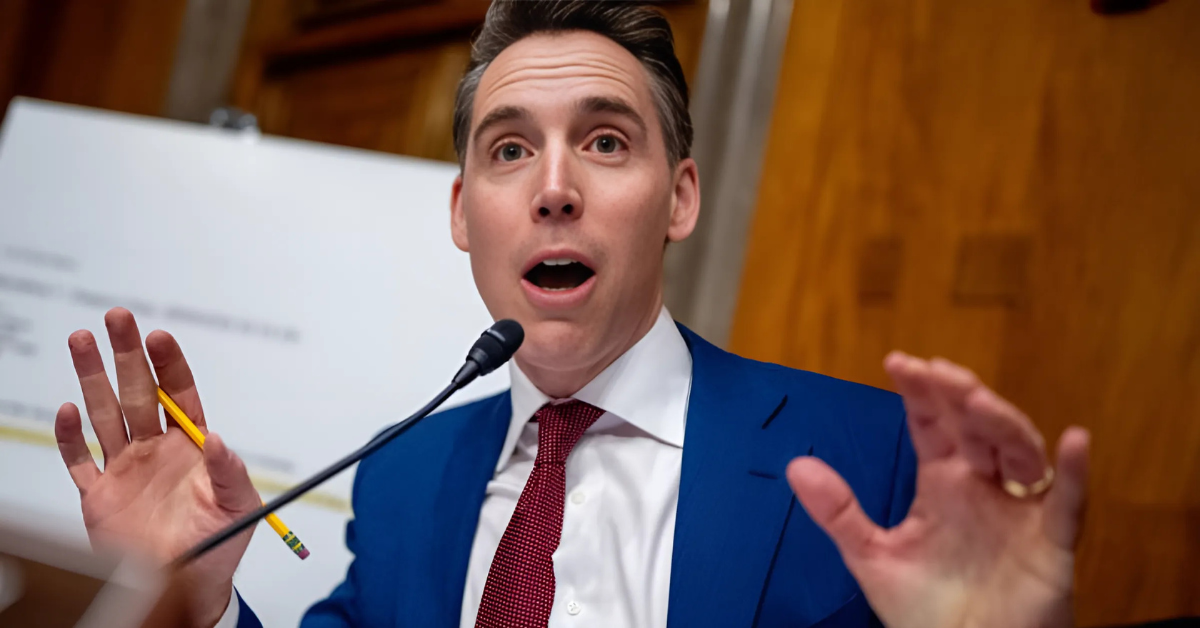U.S. Senator Josh Hawley sharply criticized Allstate’s CEO, Tom Wilson, over his hefty $26 million compensation package, calling it outrageous given the company’s inability to pay out claims. The strong rebuke highlights the growing concerns surrounding corporate pay and the responsibility of companies to honor their commitments to consumers, particularly in times of financial difficulty.
Senator Hawley, who has long been an advocate for holding large corporations accountable, took to the Senate floor to express his outrage over the disparity between Wilson’s salary and Allstate’s handling of claims. He pointed out that while the company reported making significant profits, they still struggled to pay claims to customers, especially in the aftermath of natural disasters and other large-scale events that left many policyholders waiting for compensation.
According to Hawley, this situation is indicative of a broader problem in corporate America, where top executives are often rewarded handsomely, while everyday customers suffer. “It’s deeply troubling that the CEO of Allstate can make $26 million in one year, while families who have paid their premiums for years are left without the help they need when disaster strikes,” Hawley said.
The senator’s remarks were in response to reports that Allstate had faced difficulties in processing claims quickly after major weather events. Many policyholders claimed they were left in limbo, unable to access the funds they desperately needed to rebuild their homes and lives. At the same time, the company’s executives, including Wilson, continued to receive multi-million-dollar paychecks and bonuses.
Hawley emphasized that the pay disparity between CEOs and the workers who contribute to a company’s success is becoming increasingly unacceptable. He argued that executives should be held to a higher standard, particularly in situations where they are not fulfilling their obligations to consumers. He also pointed out that Allstate’s leadership seemed more focused on expanding profits and increasing shareholder value than on ensuring their customers’ needs were met.
This incident has sparked a larger conversation about the growing divide between corporate America’s elite and the average consumer. While Wilson’s $26 million pay is extreme, he is not alone in receiving astronomical salaries. Many CEOs of large corporations earn similarly lavish compensation packages, even in times when their companies struggle or fail to meet basic customer expectations.
The debate over executive compensation is not new, but it has gained more attention in recent years as the public becomes more aware of the disparity between corporate profits and the financial struggles of the average American. In many cases, these large corporations receive substantial tax breaks and government support, making it even harder to justify such massive pay packages for CEOs. Critics argue that these executives should be subject to greater scrutiny and that they should only receive large salaries if their companies are performing well and living up to their promises to customers.
In response to Hawley’s criticism, Allstate released a statement defending Wilson’s compensation, saying that the CEO’s pay was in line with industry standards and was determined by the company’s board of directors. The company also pointed out that they had made significant strides in improving their claims process and were working to better serve their policyholders. However, critics remain unconvinced, arguing that the company’s actions don’t match their words.
The controversy surrounding Allstate’s executive pay comes at a time when many insurance companies are under increased scrutiny. With natural disasters becoming more frequent and severe due to climate change, insurance companies are facing growing pressure to pay out claims quickly and fairly. Yet, many consumers feel that these companies are more focused on profits than on providing the support they promised to their policyholders.
Hawley’s remarks are part of a larger movement calling for corporate accountability and transparency, particularly when it comes to how companies treat their customers and compensate their executives. He has promised to continue fighting for reforms that would ensure companies like Allstate are held accountable for their actions, particularly when they fail to live up to their obligations to the people they are supposed to protect.
As the debate continues, one thing remains clear: the gap between the pay of top executives and the needs of everyday consumers is a major point of contention. Many Americans feel that companies should prioritize their customers over profits and that executives should be compensated fairly, but not at the expense of those who rely on their services.
It remains to be seen whether Hawley’s criticisms will lead to any significant changes in how corporate America compensates its executives. However, the growing public awareness of these issues is likely to push for greater accountability and transparency in the future.








